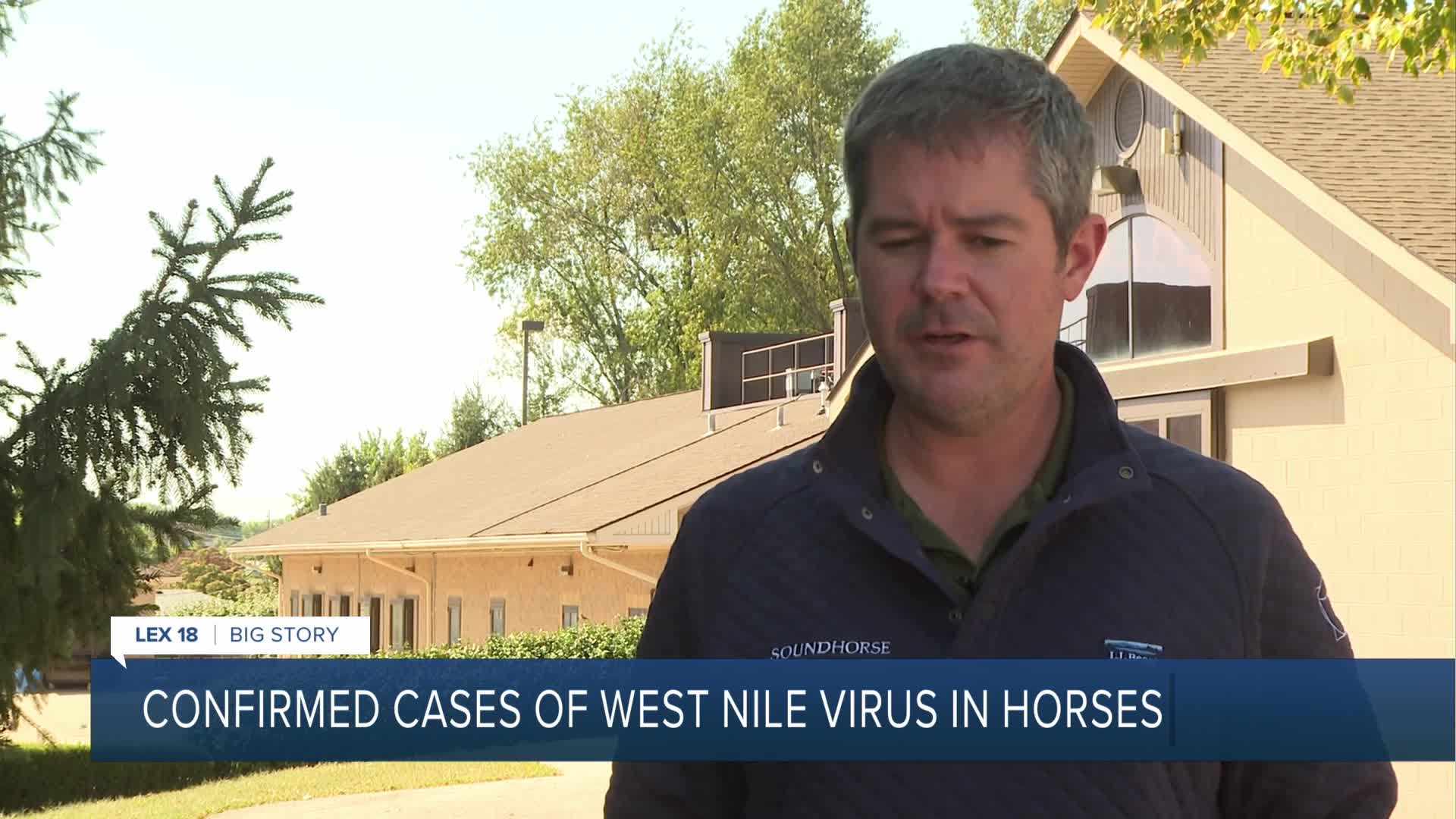LEXINGTON, Ky. (LEX 18) — Two confirmed cases of West Nile virus in Kentucky over the past month have horse owners keeping a close eye on their animals as mosquito season continues.
"So West Nile Virus is a virus that normally infects birds and is spread through mosquitoes. It was first observed in the United States in 1999 but since then has spread nationwide and is present throughout North America," said Dr. Bill Gilsenan.
Dr. Gilsenan, an internal medicine veterinarian at Rood and Riddle Equine Hospital, explains that while humans and horses can contract the virus, they are considered "dead-end hosts," meaning they can't spread it to others.
"Clinical signs and symptoms of disease can develop 5 to 15 days they're bitten by a mosquito. And the majority of horses that get infected and get sick from West Nile Virus, usually just get flu like symptoms. So they may get a fever. You may not even notice they get sick," Gilsenan said.
There's no specific treatment for this virus, so care focuses on supporting the horse's immune system. That's why prevention is key.
"The West Nile Virus vaccine is one of the best vaccines that we have. It's almost 100% effective. It's important to recognize no vaccine, like no medication, is 100% effective. But it's one of the most effective vaccines we use on horses. So there's every reason in Kentucky to have your horse vaccinated," Gilsenan said.
Another way of preventing infection is to limit the standing water in the horse's environment — that's how mosquitoes breed.
"So if you have even a bucket of water or a pond, you may know from yourself that you're most likely to get bites around standing water. So once water has been standing for longer than four days or so, that's when you're in the highest risk for mosquitoes to start breeding," Gilsenan said.





